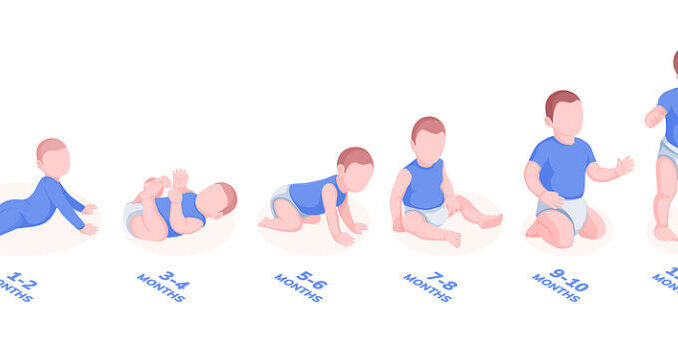
As a new parent, it’s normal to have questions and concerns about your baby’s development. Each baby develops at their own pace, and it’s essential to know what to expect at each stage to ensure your baby is on track. In this article, we will discuss the developmental stages of babies and how to know if your baby is developing as expected.
Newborn Stage (0-3 months)
During the newborn stage, your baby will be adjusting to life outside of the womb. They will spend most of their time sleeping and eating, and their movements will be mostly reflexive. At this stage, your baby should be able to:
Lift their head briefly when on their tummy
Follow objects with their eyes
Grasp objects that are placed in their hand
Make cooing and gurgling sounds
If your baby is not meeting these milestones, it’s important to talk to your pediatrician.
Infant Stage (4-6 months)
During the infant stage, your baby’s movements will become more deliberate and controlled. They will begin to explore their environment and interact with their surroundings. At this stage, your baby should be able to:
Roll over from tummy to back and back to tummy
Sit up with support
Reach for and grasp objects
Babble and make vowel sounds
If your baby is not meeting these milestones, it’s important to talk to your pediatrician.
Crawling Stage (7-10 months)
During the crawling stage, your baby will become more mobile and explore their environment on their hands and knees. They will also begin to communicate more intentionally with those around them. At this stage, your baby should be able to:
Crawl on their hands and knees
Pull themselves up to a standing position
Say “mama” and “dada” and understand simple words like “no” and “bye-bye.”
Use their fingers to feed themselves
If your baby is not meeting these milestones, it’s important to talk to your pediatrician.
Toddler Stage (11-14 months)
During the toddler stage, your baby will become more independent and develop their personality. They will also begin to walk and talk more confidently. At this stage, your baby should be able to:
Walk without assistance
Say several words and understand simple instructions
Show affection and seek comfort from familiar people
Play simple games like peek-a-boo and patty-cake
If your baby is not meeting these milestones, it’s important to talk to your pediatrician.
Preschool Stage (3-5 years)
During the preschool stage, your child will continue to develop their social, emotional, and cognitive skills. They will become more independent and start to explore the world around them. At this stage, your child should be able to:
Follow simple directions
Play with other children and share toys
Use a fork and spoon to eat
Speak in sentences and tell stories
If your child is not meeting these milestones, it’s important to talk to your pediatrician.
School-Age Stage (6-12 years)
During the school-age stage, your child will continue to develop their social, emotional, and cognitive skills. They will become more independent and start to explore their interests and talents. At this stage, your child should be able to:
Read and write fluently
Follow complex instructions
Understand the concept of time and money
Make and maintain friendships
If your child is not meeting these milestones, it’s important to talk to your pediatrician.
Adolescent Stage (13-18 years)
During the adolescent stage, your child will continue to develop their identity and independence. They will become more responsible and start to make their own decisions. At
Leave a Reply